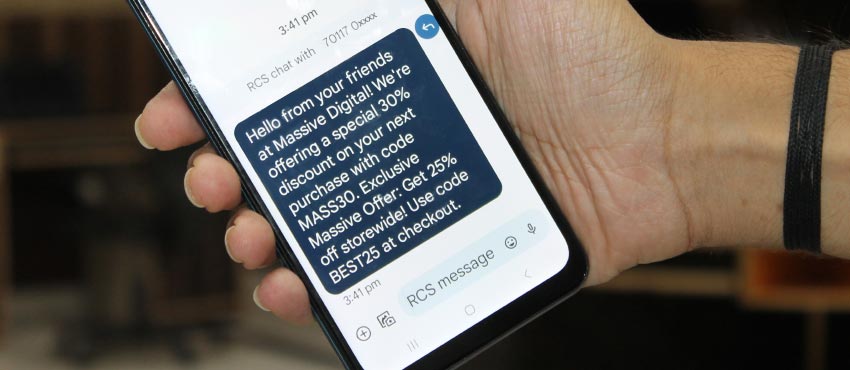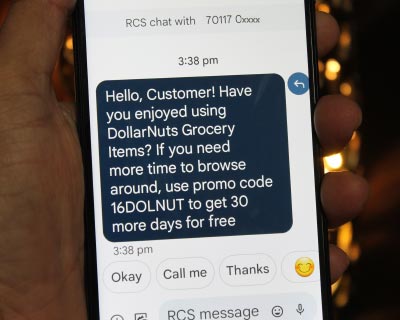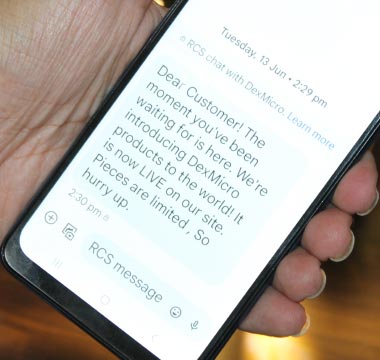Here are the key metrics and methods you can use to measure the success of your Bulk SMS marketing campaign:
-
Click-Through Rate (CTR):
If your SMS includes links to your website or landing pages, the CTR measures the percentage of recipients who clicked on those links. It shows the level of engagement and interest in your offer or content.
-
Conversion Rate:
The conversion rate tells you the percentage of recipients who took the desired action after receiving your SMS. The action could be making a purchase, filling out a form, or any other goal you set for the campaign.
-
Revenue Generated:
If your Bulk SMS campaign is directly tied to sales, track the revenue generated as a result of the campaign. This metric provides a clear indication of the campaign's impact on your bottom line.
-
ROI (Return on Investment):
Calculate the ROI of your Bulk SMS campaign by comparing the revenue generated to the total cost of the campaign. This helps you understand the cost-effectiveness of your marketing efforts.
-
Time-Based Metrics:
Analyze the timing of your SMS campaign. Determine if there are specific days or hours when your messages perform better in terms of open rates, CTR, or conversions.
-
A/B Testing:
Conduct A/B tests to compare different elements of your SMS campaigns, such as message content, call-to-action, timing, or sender ID. This helps you identify the most effective strategies.
-
Delivery Rate: This metric measures the percentage of messages that were successfully delivered to the recipients. A high delivery rate indicates that your SMS platform is reliable and that your messages are reaching their intended audience.
-
Open Rate: The open rate shows the percentage of recipients who opened your SMS messages. Since SMS messages are usually opened quickly, the open rate is generally higher compared to other marketing channels like email. A strong open rate indicates that your messages are compelling and relevant to your audience.
-
Opt-Out Rate: Monitor the percentage of recipients who opted out or unsubscribed from your SMS list after receiving the campaign. High opt-out rates may indicate that your messages are not resonating with your audience or that you are sending messages too frequently.
-
Customer Feedback and Surveys: Gather feedback from customers to understand their perception of your SMS campaigns and their overall experience. Surveys can provide valuable insights into what worked well and what can be improved.
-
Tracking URLs: If you include links in your SMS messages, use tracking URLs to monitor click-through rates and gather data on user behavior on your website or landing page.
-
Integration with Analytics Tools: If possible, integrate your Bulk SMS platform with analytics tools like Google Analytics to track user behavior beyond the SMS itself.
Practices for Using Bulk SMS Marketing Effectively
Using Bulk SMS marketing effectively requires a strategic approach that respects your audience, provides value, and aligns with your overall marketing goals. Here are some best practices to ensure the success of your Bulk SMS marketing campaigns:

-
Personalize Your Messages:
Use merge tags or variables to personalize your SMS messages. Address recipients by their first names and, if possible, customize offers or content based on their preferences or past interactions.
-
Timing Matters:
Send SMS messages at appropriate times. Avoid sending messages too early in the morning or too late at night. Consider your audience's time zones and schedule messages accordingly.
-
Integrate with Other Channels:
Integrate Bulk SMS marketing with other marketing channels to create a cohesive and multi-channel experience for your audience. Combine SMS with email, social media, or mobile apps for better results.
-
Measure and Analyze Results:
Track and analyze the performance of your SMS campaigns. Monitor delivery rates, open rates, CTR, conversions, and other relevant metrics. Use data-driven insights to optimize future campaigns.
-
A/B Testing:
Conduct A/B tests to compare different aspects of your SMS campaigns, such as message content, CTAs, timing, or sender ID. Use the insights gained to improve future campaigns.
-
Customer Support via SMS:
Use SMS to provide customer support and service. Allow customers to text their inquiries or receive order updates via SMS. This can enhance customer satisfaction and loyalty.
-
Avoid Over-Messaging:
Respect your audience's time and avoid excessive messaging. Stick to a reasonable frequency of SMS delivery to avoid appearing intrusive or spammy.
-
Optimize for Mobile Devices:
Keep in mind that most SMS messages are read on mobile devices. Ensure that your messages are optimized for mobile, with easily clickable links and legible text.
-
Include a Clear Call-to-Action (CTA):
Clearly state what action you want recipients to take. Whether it's clicking a link, visiting your store, or making a purchase, a strong CTA increases the chances of engagement.
-
Maintain a Consistent Brand Voice:
Ensure your SMS messages align with your brand's voice and personality. Consistency helps reinforce your brand identity and creates a familiar experience for recipients.
-
Obtain Express Consent:
Always obtain explicit consent from recipients before sending marketing messages. Use an opt-in process where individuals willingly provide their phone numbers and agree to receive SMS marketing. Avoid purchasing or using third-party lists without verifiable consent.
-
Segment Your Audience:
Segment your SMS list based on relevant criteria such as demographics, interests, or past behavior. This allows you to send targeted and personalized messages that are more likely to resonate with each segment.
-
Be Clear and Concise:
SMS messages have character limitations, so be clear and concise in your content. Get to the point quickly and avoid jargon or ambiguous language.
-
Comply with Regulatory Requirements:
Adhere to SMS marketing regulations and obtain proper consent from recipients. Provide a clear opt-out mechanism to respect the preferences of your audience.
-
Experiment with Content Types:
Don't limit yourself to promotions and offers. Experiment with different content types, such as event invitations, customer surveys, or exclusive content, to keep your audience engaged.
By following these best practices, you can create effective Bulk SMS marketing campaigns that engage your audience, drive conversions, and contribute to your overall marketing objectives. Remember to continuously learn from your results, adapt your strategies accordingly, and always put your audience's needs at the forefront of your campaigns.
Date: 📅 19/08/2023

